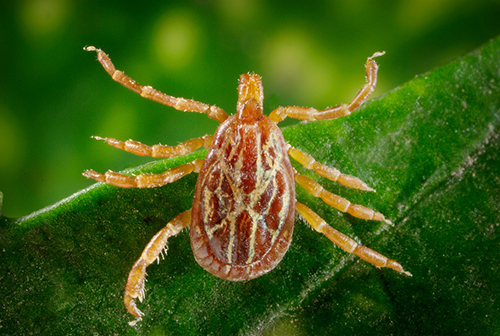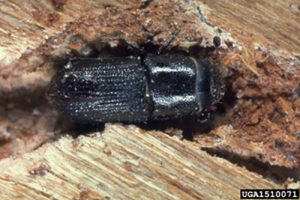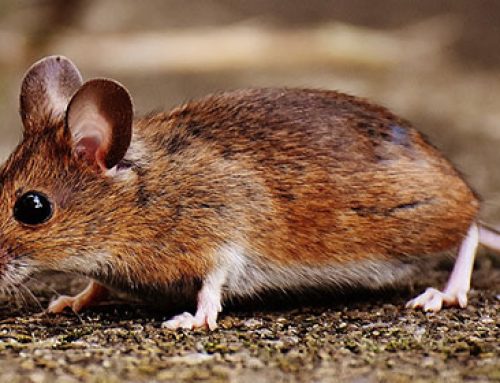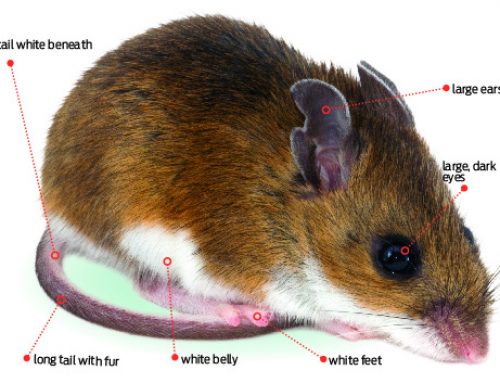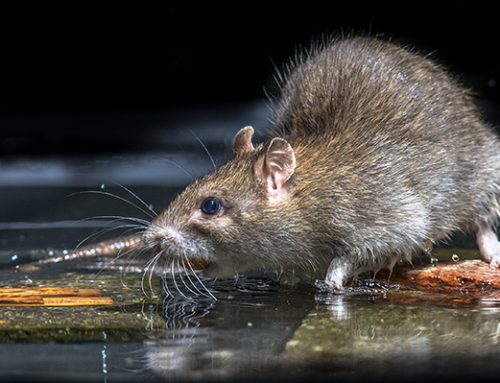This past Winter, Long Island faced temperatures that were not too terrible. Even though temperatures dipped down to the “snowable” the snow arrived a bit late and didn’t stay for long. Some insects are getting Spring kicked-off early this year all thanks to the warmer winter on the island. A few types of insects are migrating from the south, finding the weather up here a bit pleasant. To counter their fun-genda, let’s identify what insects you’ll see out and about and how to be proactive for the coming months.
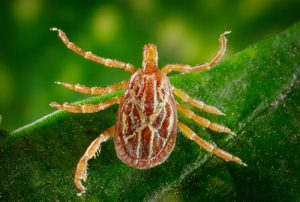 Gulf Coast Ticks – Optimal temperatures allow the Gulf Coast Tick to stick around for longer periods of time. This type of tick is known to be an aggressive feeder. Larvae and nymphs feed on smaller animals and birds while adults can feed on your pets and humans. Normally, this species is found along southeastern coasts but are spreading to the north due to the yummy weather. Gulf Coast Ticks spread a form of spotted fever bacterium called Rickettsia parkeri rickettsiosis. Be Proactive: Remove any food debris outside of your home. Periodically check your pets, kids and other family members for ticks if you have spent time outdoors. Wear tick-protective clothing, such as long, light colored pants tucked into socks and sprayed with DEET-based insect repellent. Ticks like to perch and reach up their bodies in a motion called “questing”, so it’s important to wear proper covering.
Gulf Coast Ticks – Optimal temperatures allow the Gulf Coast Tick to stick around for longer periods of time. This type of tick is known to be an aggressive feeder. Larvae and nymphs feed on smaller animals and birds while adults can feed on your pets and humans. Normally, this species is found along southeastern coasts but are spreading to the north due to the yummy weather. Gulf Coast Ticks spread a form of spotted fever bacterium called Rickettsia parkeri rickettsiosis. Be Proactive: Remove any food debris outside of your home. Periodically check your pets, kids and other family members for ticks if you have spent time outdoors. Wear tick-protective clothing, such as long, light colored pants tucked into socks and sprayed with DEET-based insect repellent. Ticks like to perch and reach up their bodies in a motion called “questing”, so it’s important to wear proper covering.
Southern Pine Beetle – Another southeastern native, this little beetle is only 2-4 mm in length. Don’t let its size fool you thought. As a swarm, Southern Pine Beetles can kill a pin tree in 3-4 months. They are also known to affect other types of neighboring trees. The Southern Pine Beetle has created havoc for the Timber industry in the past and has been confirmed to be widespread throughout Long Island. Be Proactive: Remove dead foliage from your surrounding areas. Prune any dead plants or trees. Keep an eye out for tiny holes on the barks of trees, S shaped tunnels under the bark, and popcorn-shaped clumps of resin as these could be signs of an infestation.
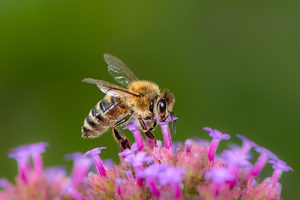 Bees – Pollinators have already been spotted at Bethpage State Park and the Farmingdale State College’s teaching gardens due to the consistently warmer winter. Bees are a couple of week early to the Spring party. Be proactive: Do not kill a bee if you happen to see one about. Bees are not aggressive and are ecological saviors. The best action you can take is to call us for an inspection.
Bees – Pollinators have already been spotted at Bethpage State Park and the Farmingdale State College’s teaching gardens due to the consistently warmer winter. Bees are a couple of week early to the Spring party. Be proactive: Do not kill a bee if you happen to see one about. Bees are not aggressive and are ecological saviors. The best action you can take is to call us for an inspection.
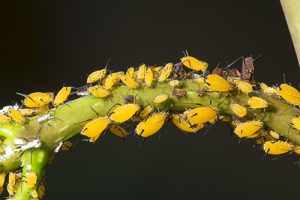 Aphids – The warmer winter can bring out aphids as well. Aphids damage crops, plants, leaves and can destroy farms and gardens Aphids are small, soft-bodied insects that feed by sucking the nutrient-rich liquids out of plants. They move a bit slow, so that can give you a chance to take control of the situation. Be proactive: Beneficial insects such as lady bugs can help control the Aphid population. You can also plant strategically by placing plants Aphids are attracted to near plants you want them to avoid so that they go for the one they like. Be careful not to use insecticides when trying to get rid of Aphids. It’s best to call us to take care of any infestation.
Aphids – The warmer winter can bring out aphids as well. Aphids damage crops, plants, leaves and can destroy farms and gardens Aphids are small, soft-bodied insects that feed by sucking the nutrient-rich liquids out of plants. They move a bit slow, so that can give you a chance to take control of the situation. Be proactive: Beneficial insects such as lady bugs can help control the Aphid population. You can also plant strategically by placing plants Aphids are attracted to near plants you want them to avoid so that they go for the one they like. Be careful not to use insecticides when trying to get rid of Aphids. It’s best to call us to take care of any infestation.
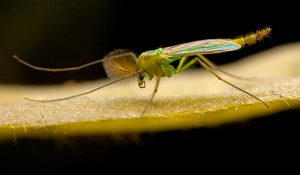 Biting Midges – Midges (gnats) are small insects that look like flies. They breed and live near large bodies of fresh water. They bite both humans and animals and are notorious for spreading disease in wildlife as well as damaging crops. Midges are already flying about. Be proactive: If you live near the coast or near a lake or pond and you are seeing midges, gives us a call for an inspection of your structure.
Biting Midges – Midges (gnats) are small insects that look like flies. They breed and live near large bodies of fresh water. They bite both humans and animals and are notorious for spreading disease in wildlife as well as damaging crops. Midges are already flying about. Be proactive: If you live near the coast or near a lake or pond and you are seeing midges, gives us a call for an inspection of your structure.
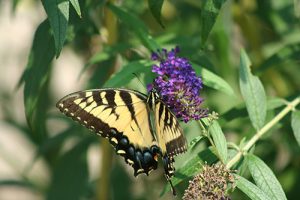 Giant Swallowtail Butterfly – Not an invasive or aggressive insect, but gardeners and homeowners should be mindful that caterpillars will be eating their leaves. That being said, the Giant Swallowtail Butterfly is currently endangered. Be proactive: We do not recommend you get rid of any caterpillars until they can be positively identified by a professional.
Giant Swallowtail Butterfly – Not an invasive or aggressive insect, but gardeners and homeowners should be mindful that caterpillars will be eating their leaves. That being said, the Giant Swallowtail Butterfly is currently endangered. Be proactive: We do not recommend you get rid of any caterpillars until they can be positively identified by a professional.
These are insects that show the signs of an early Spring. If you have any concerns as spring begins, give us a call for an inspection.
Call to set up an appointment with one of our
knowledgeable technicians today!
1-800-572-9797
Resources:
Long Island’s warmer winter may bring insects, ticks and other bugs to your house a little earlier than usual https://www.newsday.com/long-island/environment/insects-migrate-north-early-global-warming-y13yv78t?utm_medium=web_share_api&utm_campaign=web_share_api
Southern Pine Beetle https://www.dec.ny.gov/animals/99331.html
Gulf Coast Tick Spotted in Suffolk County. By: Haley Gladitsch https://liisma.org/gulf-coast-tick-spotted-in-suffolk-county/
Aphids https://www.almanac.com/pest/aphids

